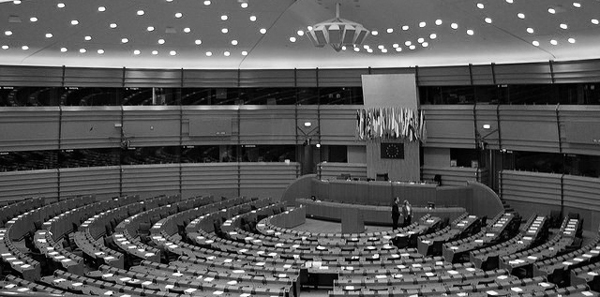Why progressives should not favour EU budget cuts
We are now close to the final negotiation on the multiannual financial framework (MFF) of the EU for 2014–2020. A summit will be held on the 22nd November in Brussels. As always in European policies, and as always right before...
We are now close to the final negotiation on the multiannual financial framework (MFF) of the EU for 2014–2020. A summit will be held on the 22nd November in Brussels. As always in European policies, and as always right before important decisions, the debate is becoming heated in some member states.
For instance the vote last week in the House of Commons in London where the British prime minister, David Cameron, was severely defeated on his proposal to freeze the EU budget.
It illustrated the strong eurosceptic sentiment in Great Britain at the moment. More surprisingly the Labour party voted on the same line as the right-wing eurosceptic Tories to impose severe cuts to the budget. In a recent article, British Labour emphasised that whilst people are seeing cuts in national budgets, cutting the EU budget is “a principled, pro-European argument”.
It’s not only in the UK that proposals to cut the EU budget are being spelled out but also in Denmark, Sweden and Germany.
However, this is not understandable if we consider further issues. The proposal of the Commission, which has been approved by the European parliament is to have an increase of 5 per cent over the inflation rate for the next seven years, representing, approximately, a mere 1.03 per cent of the EU gross national income for the whole EU budget. Even in these troubled times, is this “ludicrous”?
The EU budget should recognise at least three elements for the upcoming period:
1. The importance of Europe in the globalised world.
2. The continuing harmonisation of the member states’ economic situations.
3. The consolidation of spending, especially in these times of stagnation and crisis.
Furthermore, the budget should reflect the real economic and social situation in the member states. Member states who, at the moment, are witnessing dangerously high unemployment, especially amongst the youth, and a continuing decline in efforts towards education and research.
How can Europe strengthen its global position without investment? How then will it become an operative knowledge-based economy? How can Europe fight against youth unemployment by cutting education budgets?
All this can only be achieved by allocating money to these sectors and by making a sound commitment towards European policies and budgeting for such commitments. However, if the progressive movement in Europe is conceding cuts in European spending, this is only, as the Guardian newspaper wrote, adopting the same policy as the Tory right in Britain, which means a hostile, anti-European approach.
To overcome the crisis in Europe progressives need to be clear and decisive. A real and new alternative political budget proposal has to be put on the table which can prove to citizens that Europe is not part of the problem but actually the solution. Austerity and cuts are not helping overcome the crisis. This can already be seen.
Linking the European budget framework to budget cuts carried out by conservative governments in the member states is dangerous. Ultimately, it creates more fertile ground for euroscepticism to build up and creates a growing disconnection of the citizens from Europe.
Evidently, there is room to allocate the budget according to politically decided goals of the member states of the EU but this does not automatically mean that we should cut the overall framework.
Yes, it is outdated to spend nearly 40 per cent of the EU budget on the Common Agricultural Policy. Yes, it is not acceptable that those who profit most from the agricultural policy are not the normal farmers, as we always presume and as the agricultural industry is always lobbying, but large-scale industrial agricultural plants and sizeable land owners, one example being the British Monarchy! Yes, it is time to reform the structural and cohesion funds (see the recent FEPS study for further details). And yes, it is time to see if it is necessary to only have large infrastructure projects, e.g. roads, bridges etc financed within the structural and cohesion funds, instead of investing, for example, in new green technologies, research and skills to provide growth.
All this brings us back to the last negotiation round in 2006. At that time is was already stipulated that as long as the European Union has not the proper right to finance its own budget by its own resources it will always be an unpleasant bargaining process because the resources have to come from the national budgets.
Therefore, Europe is facing a serious problem. In times of crisis, in most of the member states, the European budget is seen as a source of supplementary income in the case of the net-receiver countries or a source of less spending in the net-contributing countries. Consequently it is, by definition, not seen as a truly European commitment and is therefore reduced to being an unpleasant bargaining procedure.
A budget is the expression of the politics to be implemented. Therefore the progressive argument should be about developing Europe further, not being against it as the conservative austerity policy makers are.
The fundamental issues for the next seven years will be determined by asking: ‘What kind of Europe do we need?’ and ‘What kind of Europe do we want?’. Just as it always has been in the history of the EU, the road is risky but we have to take it if we are to develop and re-shape European integration.
So much has already been established and gained that it would be foolish to let it succumb to neo-populist, anti-European and national short-term battles. The chance to advance and shape Europe should not be given away. A ‘worthy’ budget frame for 2014-2020 is essential!
